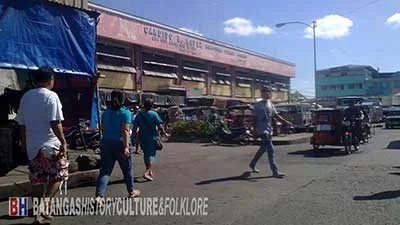[CULTURE] Arimohanan: a Word to Sum Up a Culture of Frugality in Batangas
Arimohanan. It is difficult to find a direct English translation for this quaint little Batangueño word. It is a word mothers and generally older women – albeit not exclusively — used a lot — repeat, a LOT – in the old days; and probably still do in the present. Moreover, the word’s use varies in context and it can mean different things to different people.
For instance, if one stoops to pick up a measly five centavo coin on the sidewalk that nobody else wants because it is considered to have so little value, one can explain the fussiness by saying, “Arimohanan din!”
In this context, the word may mean pandagdag [literally, “something to add to something”] to, say, the coins in one’s pocket that can be used to pay one’s jeepney fare. It may also be an expression of a sense of practicality in using something that nobody else wants; or a simple recognition that there can be no one million pesos without that five centavo coin.
In the old days, mothers who went to the market with a son or daughter to carry the bayong [a woven bag1] of her purchases could drive the youngster crazy by hopping from one tindera [female vendor] to the next like a busy bee in search of miserable savings of five centavos or maybe even less. Worse, it was not uncommon for her to return to the first tindera after all, this after the weary child trudged behind her all over the market.
Then, after haggling the price of the gulay (vegetable) down five centavos, she would beam happily and explain to her child, “Arimohanan din!”
There is also the hoarding aspect of the arimohanan. A peanut butter bottle, once empty, is cleaned up and stashed away inside a cupboard until it is filled with empty peanut butter bottles that nobody has any use for. Arimohanan.
A plastic bag from the supermarket or grocery store is folded neatly and then stashed away inside a cabinet until it is filled with plastic bags that nobody has any use for. Arimohanan.
The wrappers from gifts the family receives on Christmas and other occasions are carefully removed and smoothened, to be used when giving gifts to other people. Arimohanan.
In this context, the arimohanan seems to refer to the act of putting away something — anything — that is seen to one day have some use and is handy to keep somewhere in the house. Never mind if the cabinets and cupboards are overflowing with them...
Mothers would also keep leftover food for as long as they could and as long as the food remained viable inside the fridge in the hope that they could recycle these when cooking other dishes. Arimohanan.
To sum, the Batangueño culture of arimohanan seems to also be a culture of frugality. Whatever the context, the expression always has underlying economic principles: the need to save and be frugal and the wisdom of not letting anything be wasted.
However, an archaic Tagalog dictionary2 written by Spanish friars gives a clue as to what the word “arimohanan” originally meant. The “Vocabulario de la Lengua Tagala,” first published in 1613 and likely compiled earlier, provides the word “arimohan” which is defined as “Ahorrar, añadir algo al trabajo.” This translates into “saving or adding something to the work” or something that has already been accomplished. In other words, the word originally pertained to frugality and economics, a trait of the people of Batangas even to this very day.
So do you roll a bottle over your toothpaste container to squeeze out every drop? Walk a kilometer along the way before you ride your jeepney so that you only need to pay minimum fare? Use three cloves of garlic though the recipe explicitly says four? Squeeze leftover bars of soap together to lather yourself with although you have several new boxes in the closet?
Arimohanan. You’re a practitioner.
2 “Vocabulario de la Lengua Tagala,” by Juan Jose de Noceda, Pedro de San Lucar, et. al., first published 1613.

